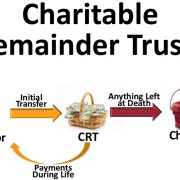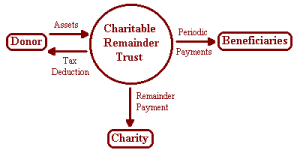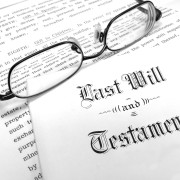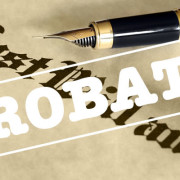Creating a Business Succession Plan – Cross Purchase Agreements
Creating a Business Succession Plan – Cross Purchase Agreements
Whether you’re planning for retirement or tragedy, having a business succession plan is imperative for business owners. Big business or small, planning for the financial stability of your partners and employees can mean the difference between business as usual and leaving your spouse bankrupt. Moreover, understanding the value of your business can affect your decision to sell, retire, or leave a legacy. Cleveland, Ohio estate and business planning attorney Dan Baron has the following remarks to help you secure your financial future.
One way to create a succession plan is through a “cross purchase agreement.” Two concepts stand at the root of all cross-purchase buy-sell agreements: protection and fairness. A surviving business owner wants to be protected from interference by outsiders when a co-owner dies. Concurrently, a business owner wants to assure fair treatment of his or her heirs in the event of death.
Step One – Choose a Successor
Unless you’re selling your business – where you would normally sell to the highest bidder – picking a successor isn’t easy. Many factors determine whether a succession plan is necessary and sometimes it can be as easy as passing the business down through a family member. When choosing a successor, there may be several partners or family members from which the owner will have to choose, each with various strengths and weaknesses to be weighed and evaluated. In this case, lasting resentment by some or all of those not chosen may result, no matter what choice is ultimately made. Outside of a family business, partners who do not need or want a successor may simply sell their portion of the business to their partners in a buy-sell agreement. Talk with a Cleveland, Ohio estate planning or business succession attorney to learn more.
Step Two – Evaluate the Value of the Business
As mentioned, your succession plan may be as simple as selling it off. But no matter whom the intended successor may be business owners must establish a set dollar value for the business, or their share of it. This can be done via appraisal by a certified public accountant (CPA) or by an arbitrary agreement between all partners involved. Tax attorneys and business succession attorneys may also assist in the business evaluation process. Estate planning lawyers and accountants use various metrics for evaluation business including sales, stock value, liquidity, profits, reoccurring contracts, EBITDA (Earnings before Interest, tax, depreciation, and amortization), cash flow, and more. In addition, your estate planning attorney may evaluate your business using a number of other methods including asset based or income based evaluations. For corporations, where the portion of the company consists solely of shares of publicly traded stock, the valuation of the owner’s interest may be determined by the stock’s current market value.
Step Three – Cross Purchase Agreements
A cross-purchase agreement is a tool used by business owners to assure that “business as usual” continues if co-owner dies. Like an entity or stock redemption agreement, the cross-purchase buy-sell agreement stipulates that:
- A deceased owner’s estate must sell the business interest to surviving owners, and
- The surviving owners will buy that interest.
There are no exceptions—the estate must sell and the survivors must buy.
Creating a cross purchase agreement is commonly used a usually starts with creating a life insurance policy. Once a set dollar value has been determined for the business, life insurance is purchased on all partners in the business. Then, in the event that a partner passes on before ending his relationship with his partners, the death benefit proceeds will be used to buy out the deceased partner’s share of the business and distribute it equally among the remaining partners.
A cross purchase agreement is structured so that each partner buys and owns a policy on each of the other partners in the business. Each partner functions as both owner and beneficiary on the same policy, with each other partner being the insured; therefore, when one partner dies, the face value of each policy on the deceased partner is paid out to the remaining partners, who will then use the policy proceeds to buy the deceased partner’s share of the business at a previously agreed-upon price.
Example: How a Cross-Purchase Agreement Works
Let’s say for example that there are three partners who each own equal shares of a business worth $3 million, so each partner\’s share is valued at $1 million. The partners are getting older and want to ensure that the business is passed on smoothly in the event one of them dies. Thus, they enter into a cross-purchase agreement. The agreement requires that each partner take out a $500,000 policy on each of the other two partners. Now, if one of the partners dies, the other two partners will each be paid $500,000, which they must use to buy out the deceased partner\’s share of the business.
One limitation to be noted here is that, for a business with a large number of partners (five to 10 partners or more), it becomes impractical for each partner to maintain separate policies on each of the others. There can also be substantial inequity between partners in terms of underwriting and, as a result, the cost of each policy.
Cross purchase agreements are just one of many ways to ensure a business’s legacy. For more information on estate planning or business succession, contact Cleveland, Ohio attorney Daniel A. Baron at Baron Law. Contact a lawyer today by calling 216-573-3723. You will speak directly with an Ohio attorney who can help you with all your estate planning needs.







